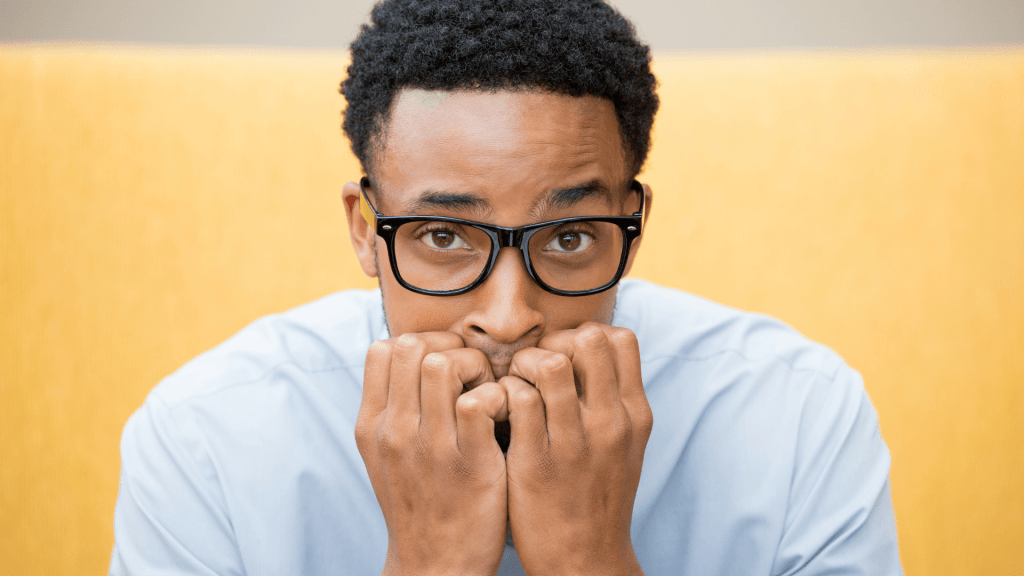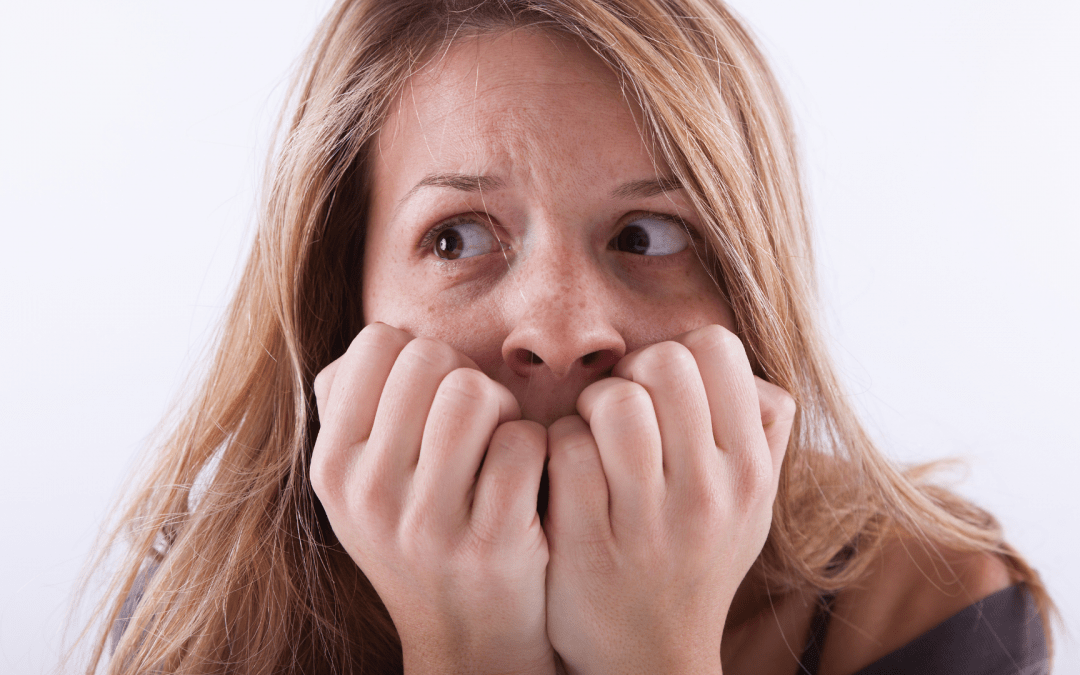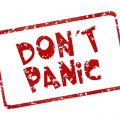Table of Contents
Anxiety is our body’s natural response to dealing with stress. It is a feeling of fear, more so apprehension of what lies ahead and what’s to come. It may be your disposition to the first day of school, or if you are to attend a job interview, or deliver a speech. These scenarios often may cause most people to feel fearful, to feel nervous. But if your senses of anxiety are excessive and in this case not ordinary as it is presumed to last longer than six months, and interferes with how you live, you may be encountering an anxiety disorder.
In this case, we are all caring for our mental health. As what is on the inside, manifests on the outside, and is generally vital if we are to live in the best positive shape. Join and read along, as we’ll tackle everything there is, about anxiety and anxiety disorders.
What Is Anxiety?
Anxiety is a normal body’s reaction to a threat that may harm our well-being. If it is not for it, then we’ll be left incapable of reacting when we are in danger, and even, we would not be alive today, without it. It is nothing but our body’s normal reaction to stress. Fear is often as similar as anxiety, however, it is not. Fear is just a similar emotional response, our body’s response to a real, or deemed imminent threat, while anxiety is our mind, and our body, anticipating a future threat.
Moreover, anxiety is capable of being so much more than whether or not we might need to run when faced with a certain circumstance. Since we humans are primed to survive, our minds have a habit of assuming that more things are a threat to us than they are, hence igniting us to be more anxious, than the healthy dose of it.
Anxiety Disorders Defined
It is conventional to feel anxious about, for instance, moving to a new place, maybe starting a job, or having to take an exam. This type of anxiety is unpleasant; however, it may motivate one to work harder, and to manifest doing a better job. This is marked as Ordinary anxiety, a feeling that comes and goes, and does not impede living our day-to-day life.
In dealing with an anxiety disorder, the feeling of fear may be staying with you all the time. This tends to be intense, and at times, debilitating. A type of anxiety that may cause one to stop doing things, one must, one adore, and one absolutely, love and aspire to. It goes extreme, as preventing one from entering an elevator, crossing the streets, and sadly, even leaving home.
Anxiety disorders are now the most common form of emotional disorder, and this ought to affect anyone, regardless of their age. Interestingly, women are also more probable than men to be diagnosed with one of these conditions.
Types of Anxiety Disorders
Anxiety is an integral part that makes up the majority of several different disorders. These comprise:
Generalized anxiety disorder
This entails a person feeling excessive, unrealistic worry together with tension with little to no apparent reason.
Panic disorder
This is the recurrent experience of panic attacks at unexpected, and often unpredictable times. A Person having acquired this may live in fear, fear of the next panic attack. During a panic attack, a person may break out in sweat, feel chest pain, and have a pounding heartbeat. It also manifests a choking-like feeling, together with a heart attack sensation.
Phobia
This is the excessive, and sometimes unexplainable fear for a distinct object, activity, or situation. The fear extends to what is appropriate, which causes a person to avoid ordinary situations.
Social anxiety
This is a tantamount fear of the person whose feeling he is being judged by others in social events and situations. This causes one to feel self-conscious about everyday social situations. Most, overly, worry about others ridiculing them in their heads. A constant embarrassment in other people.
Selective mutism
A kind of social anxiety in which young kids who talk normally with their family often are frightened and would not speak in public social events, a school for instance.
Obsessive-compulsive disorder
Entails the recurring irrational thoughts towards something that leads a person to conduct, specific and repeated behavior.
Separation anxiety disorder
Apprehension from being away from a place, often a comfort home, or a dear person he is close to. People who experience this also agonize that something bad might happen to their loved ones.
Illness anxiety disorder
Constant worry about health, formerly denoted as hypochondria.
Post-traumatic stress disorder
Anxiety born following a traumatic event.
Medication-induced anxiety disorder
The use of certain medications, or destructive illegal drugs, or withdrawal from distinct drugs empowers symptoms of anxiety disorder.
What Are the Symptoms and Signs of One’s Anxiety?

We experience and feel anxiety differently from each other. It is considered unique to own, as its feeling can range from being butterflies in your stomach, or one can feel a racing heart. You might feel unable to control, as though there is a disconnect between your mind and body.
Others may experience anxiety, as a form of nightmares, panic attacks, and painful thoughts or memories one cannot get a grasp on. You may also be in a general sensation of fear and worry or may feel a fight, towards a specific place, or event for this reason.
Symptoms of General Anxiety:
- Increased heart rate
- Rapid breathing
- Challenge in concentration
- Difficulty falling asleep
- Irritable
- Fatigue
- Nausea
- Body aches
- Sweating
- Shortness of breath and dizziness
Anxiety Attack: Explanation
An anxiety attack is a feeling of overpowering apprehension, worry, alongside distress and fear. For most of its sufferers, an anxiety attack builds slowly. It may worsen as a stressful event begins approaching. It also differs greatly, the indications of it differ case-by-case, for the reason that many of its manifestations do not happen to everyone, and may alter as time changes.
Common symptoms of an anxiety attack:
- The feeling of faintness and dizziness
- Shortness of breath
- Having a dry mouth
- Sweating
- Chill or hot flashes
- Apprehension and worry
- Restlessness
- Distress
- Fear
- Tingling, numbness
Causes of Anxiety
Unfortunately, researchers are still uncertain as to the exact causality of anxiety. However, a combination of factors may play a position. These include genetic and environmental variables, together with the very brain chemistry.
To add, researchers also believe that there are areas of our brain responsible for taking control of our fear that may be affected.
Most Common Variables of Anxiety Disorders
Family history
Persons who have a record of mental health issues running in their biological loved ones, ofttimes, navigate their life with troubles of anxiety. For example, OCD can be passed down in a family.
Brain chemistry
Anxiety disorder is associated with imperfect circuits in the brain that have command over fear and worry, in certain cases.
Stressful events
Certain stresses such as the workplace, loss of a loved one, as well as troubled relationships, can be a culprit of experiencing anxiety.
Health challenges and conditions
Thyroid problems, diabetes, heart diseases, and asthma are showing links towards anxiety. Persons who have got depression can likewise manifest symptoms of anxiety disorders. For example, someone enduring depression may start out showcasing a shortfall at his job. This can then afterward become work-related stress, a contributor to triggering anxiety.
Substance use
Individuals that are heavy users of drugs, alcohol together with other destructive substances may be able to bring out anxiety problems when the effect of the substance begins to dwindle, withdraw.
Personality factors
In some instances, people who have certain personality traits, such as being a perfectionist, or those individuals like having authority and control can develop certain anxiety-related challenges.
Medical Causes of Anxiety
For some people, their anxiety is tied in with their inherent health issues. In some cases, having anxiety signs and symptoms are their first indicators that entail a specific, separate medical illness.
Medical problems that can be tied to anxiety include:
- Heart disease
- Diabetes
- Thyroid problems
- Respiratory challenges such as having a chronic obstructive pulmonary disorder and asthma
- Withdrawal from alcohol and antianxiety medications
- Chronic pain, or irritable bowel syndrome
- Rare tumors that trigger certain fight or flight hormones
Sometimes, anxiousness can also be a side consequence of certain medications. Also, a person’s anxiety may be due to an underlying condition if they do not have any blood relatives that come up against an anxiety disorder. Moreover, If they do not run into an anxiety disorder as a child, they do not resist certain things, nor do those situations because of anxiety. Lastly, having a sudden happening of this condition that seems unlinked to life cases and them having no previous record of anxiety.
Current research for anxiety is still taking further and more accurate looks on parts of our brain that concern this condition the most.
What Are the Risk Factors of Anxiety Disorder?
History of mental health disorder.
If you feature another mental health disorder, such as depression, it heightens your probability of anxiety disorder.
Childhood sexual abuse.
Emotional, physical as well as sexual abuse and neglect during childhood, strongly relate to having an anxiety disorder later in life.
Trauma.
Living through a traumatic event increases the probability of post-traumatic stress disorder or PTSD that causes unexpected panic attacks.
Negative life circumstances.
Negative, unfortunate, and tormented life circumstances in one’s early life also increase the likelihood of developing an anxiety disorder.
Chronic health condition, or have a severe illness.
It is established that continual worry about one’s health or well-being of a loved one, as well as caring for someone that is sick, causes feelings of overwhelming anxiousness.
Substance abuse.
Usage of alcohol and illegal drugs makes one more likely to develop a disorder in anxiety. Some of these people, also resort to these substances to hide or ease anxiety symptoms
Being shy as a child.
Shyness and one’s withdrawal from unfamiliar people, places, events stemming from childhood closely relates to developing social anxiety in teens and adults.
Low self-esteem.
Negative perception about oneself can ignite social anxiety disorder.
Personality.
People with destined personality kinds are also more inclined to anxiety disorders.
Complications of Anxiety Disorder
Anxiety disorders will make one’s body worse, rather than making one worry. If left neglected, untreated, and aggravated, other mental and physical conditions can manifest, unfortunately. These can include:
Depression
Studies suggest that in this time being, it is prevalent and relatively typical how it is a possibility to contain depression than an anxiety disorder has activated. These disorders may be a generalized anxiety disorder, panic disorder, or separation anxiety disorder, the three of which are mostly brought up.
Substance misuse
Individuals with anxiety that are unaware of his condition and his treatment options may turn into destructive substances in which they think positively as they put a hold on anxiety symptoms in the meantime.
Insomnia
Anxiety can be a culprit on some serious sleep issues, insomnia being the most common. While encountering episodes of anxiety attacks, continually it ensues in individuals feeling drained and weary, the act of descending to sleep may inflate into a fright, and maybe gone problematic because of the body’s alleviated sense of worry and terror.
Headaches, Migraines and Chronic Pain
Stems from the stress of constant agony and trying hard to control one’s life, amidst anxiety.
Digestive or bowel challenges
Anxiety, when worsening, also has its way of disturbing the delicate balance of our digestion, causing people to struggle with a slow metabolism, bloating, pain, constipation as well as diarrhea.
Social isolation
Social isolation can both be a symptom, cause, and complication of anxiety. Someone having anxiety may avoid social situations and would resort to just spending time only in the company of their own selves.
Problems performing at school or at work
Aggravated anxiety can wear off one’s willingness, motivation, drive, and productivity to excel in either school or work tasks. They may lose drive or excitement, happiness, and content on once was their passion.
Having an awful quality of life
Untreated anxiety often means a constant world full of fears, worry, and dwelling from what is gone and going, causing individuals to miss out on the relationships, experiences, opportunities that will gladly make them sustainably happy.
Tests Diagnosis for Anxiety
A single test will not immediately ascertain anxiety diagnosis. As an alternative, an anxiety diagnosis would require a long, intricate process of physical examinations, mental health assessment alongside a series of psychological questionnaires. Physicians may also request for conduction of physical exams that include blood or urine tests to help rule out underlying medical disorders that could take part in symptoms one is experiencing.
Moreover, several anxiety tests, as well as scales, are also taken advantage of to aid doctors in assessing the level of anxiety their patients are experiencing.
What Are the Treatment Measures for Anxiety?
Hypothetically, once you have been diagnosed with anxiety, your treatment options are up for exploration with your doctor. For some individuals, medical treatment is not indispensable. Instead, a series of lifestyle changes may be good enough to cope with symptoms.
In moderate or severe cases, however, treatment aids to overcome symptoms and pave the way for leading a more manageable and healthy day-to-day life. This treatment falls into two sets, psychotherapy and medication. Meeting with a psychologist or a therapist can help one learn tools to use, alongside strategies to implement in coping with their condition. On the other hand, the medications typically adhere to anxiety include antidepressants and sedatives. These two drugs operate to negate brain chemistry, assisting in thwarting episodes of distressing anxiety, alongside warding off the most severe manifestation this condition has.
Lifestyle Changes for Someone With Anxiety
Eating real foods.
Choosing to consume real food is the natural first step towards achieving great overall earth and wellness, and this includes our mental health. Real food is just that, really, instead of opting to be processed and full of artificial ingredients. These dyes, colors, industrial seed oils, refined sugars alongside additives are not only a challenge to pronounce but also harmful to our health and nervous system. Real food is those that are nutritionally dense and balanced, full of color, diversity, and seasons, that aids in giving our bodies and systems what it needs in order to regulate, health, and most of all, thrive.
Get adequate, and healthy sleep.
When we are stressed and anxious, our body will naturally require more sleep, as well as demand rest. While anxiety and sleep are unhappy bedfellows, you can improve your sleep habits by aiding “Sleep Hygiene”. Setting up and sticking to a relaxing bedtime routine, and putting an effort into making your bedroom as sleep-friendly as possible, contributes to great good night sleep that then manifests as reduced anxiety.
Committing to regular relaxation time.
Scheduling and adhering to a regular relaxation time to unwind as well as calm our mind and body are essential to lessen feelings of anxiety. For instance, meditation has been shown to alter and promote positivity in our brain chemistry, and sparks areas of our brain that process emotions such as anxiety. It aids in feeling relief and allows for staying calm in the present moment.
Exercise.
This is considered important for maintaining our mental health, as well as in reducing our stressors. Studies have demonstrated how exercise is bright and effective in shrinking fatigue, in bettering alertness and concentration, alongside, improving our overall cognitive utility. A 10-minute walk is wonderfully powerful in relieving anxiety, as well as a 45-minute workout. Researches repeatedly prove that exercising functions speedily in relieving our gloomy, anxious, and depressed condition.
Get connected.
Our social connection is also great for our mental and emotional well-being, and it also impacts our physical health. Research suggests that having healthy social connections improves our quality of life and longevity, it also regulates our hormones, decreases our risk of diseases, and finally, reduces our anxiety. Simply put, we are better, together,
Let your emotions out.
Pouring our emotions out, maybe to paper, to a therapist, or to your best friend, helps us to feel relieved, heard, and validated about our anxiety.
Avoid caffeine, alcohol, and cigarettes.
These three substances are enemies of anxiety, and avoiding them will greatly do you good.
Have a sense of purpose.
Extensive research has found that individuals having a strong sense of purpose are better able to take charge of the ups and downs life throws at them. It builds long-term residence that leads to decreased worrying and greater happiness over time.
List of Anxiety Medications
- Selective serotonin reuptake inhibitors
- Serotonin-norepinephrine reuptake inhibitors
- Tricyclic antidepressants
- Benzodiazepines
- Beta-blockers
- Buspirone
- Monoamine oxidase inhibitors
Foods That Aid in Reducing Anxiety
- Brazil nuts.
- Fatty fish.
- Eggs
- Pumpkin seeds
- Asparagus
- Dark chocolate
- Turmeric
- Chamomile
- Yogurt
- Green tea
Outlook for Anxiety
Anxiety disorders can frequently go undiagnosed, as well as not treated, and it, unfortunately, becomes the normal way of living with poor individuals who are clueless that they can get better and have a happier, liver, healthier disposition in life. With all the advancements in the field of medicine, various treatment options can aid. The right treatment can help an individual improve the quality of his life, relationships, productivity, and fields of overall well-being.
Conclusion
One must not live in constant worry and fear. If you are noticing symptoms of an anxiety disorder, seek a healthcare professional. This action limits all the problems and negativity anxiety disorders can ignite. Medications, counseling, lifestyle changes, are the ones that will make you your best.
And that ends our comprehensive discussion about everything that concerns anxiety. We hope you learn and are able to find enlightenment with this condition. Share our words to someone who might be in need!






 I love to write medical education books. My books are written for everyone in an easy to read and understandable style.
I love to write medical education books. My books are written for everyone in an easy to read and understandable style.